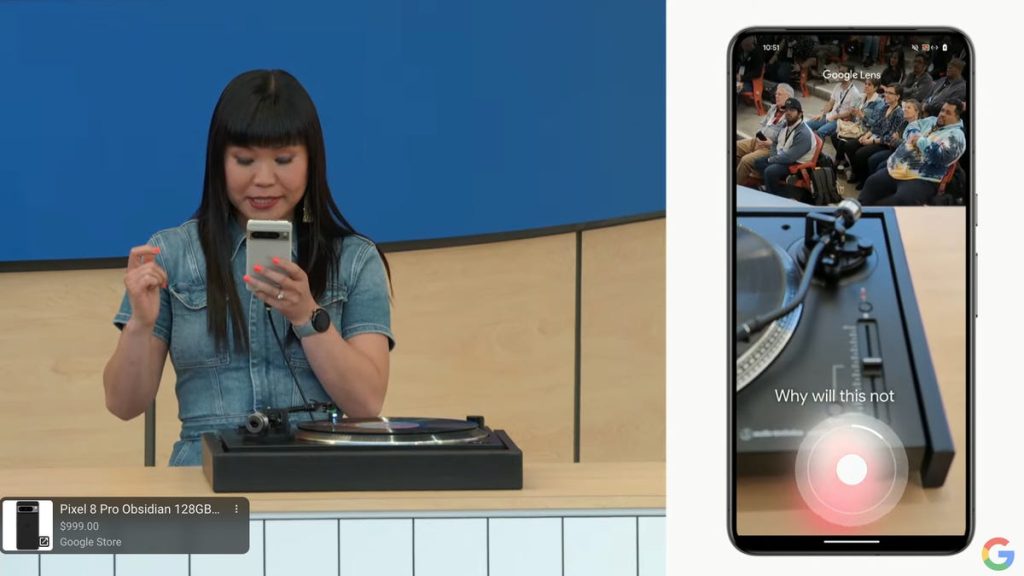At the Google I/O keynote, the focus was on how AI will enhance Google’s software and apps, particularly through the use of Gemini, the generative AI-powered chatbot. This technology allows users to ask questions while taking a video and receive AI-generated answers. While this represents a promising future for those who may feel embarrassed to ask questions, it also highlights the decline in Google Search quality in recent years. The AI enhancements serve as a band-aid for a problem that Google itself has exacerbated.
During the event, Google Search VP Rose Yao demonstrated how Google Lens and AI tools can be used to troubleshoot real-life problems, such as a malfunctioning record player. By asking questions aloud and recording a video, users can receive AI-generated answers based on context clues, online resources, and source attribution. This seamless process is made possible by stringing together AI queries to provide accurate and timely responses, which may not be achievable through traditional manual searches.
While AI tools like Google Lens can help users with specific questions and issues, they are not a substitute for professional expertise or medical advice. However, they can assist users in overcoming the initial hurdle of figuring out what to search for. By speeding up the search process and providing contextually relevant answers, these AI tools can be valuable for individuals seeking information on various topics, from car parts to medical concerns.
The potential of AI tools like Google Lens lies in their ability to quickly and accurately answer questions that may have previously gone unanswered. This can be especially beneficial for individuals with anxiety or those seeking information on sensitive topics. The convenience of asking a faceless AI for help without fear of judgment can be empowering for users, particularly when seeking answers to personal or embarrassing questions.
However, the effectiveness of AI tools in providing accurate answers depends on the quality of the information they are trained on. In cases where AI-generated suggestions may be harmful or incorrect, it raises concerns about the reliability and safety of relying on AI for information. Additionally, as the internet search landscape becomes more cluttered with ads and low-quality results, the reliance on AI to sift through the noise may have long-term implications for the search ecosystem.
In conclusion, while AI enhancements like Google Lens offer promising solutions to users seeking quick answers to their questions, they also raise questions about the impact of relying on AI for information retrieval. As the internet search environment evolves and becomes more challenging to navigate, the role of AI in assisting users with search queries may continue to grow. However, it is essential to consider the potential consequences of shifting reliance from manual searches to AI-driven solutions in the long term.












